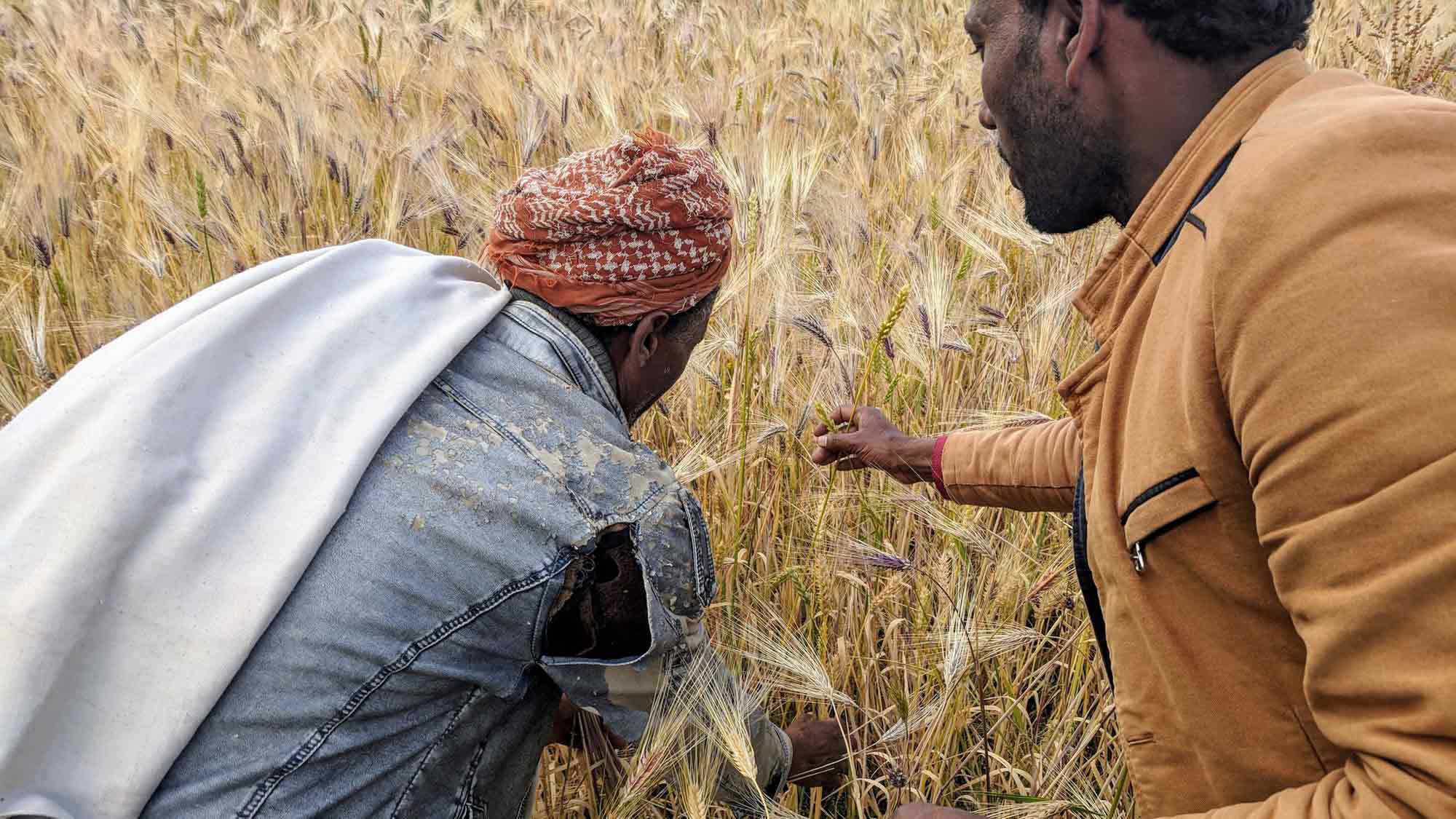Morgan Ruelle, a professor in the School of Climate, Environment, and Society, is part of an international research project to determine whether Ethiopian farmers’ age-old practice of planting and harvesting traditional grain mixtures could offer a climate-resilient solution to global food insecurity.

Ethiopian farmers may hold the answer to curbing famine, and researchers are listening to them.
Four decades after Ethiopia saw as many as 1 million people die from famine, Africa once again faces a far-ranging food crisis, this time brought on mostly by climate change. And drought-induced famine is only expected to get worse. But this time, a Clark professor and his research colleagues are investigating a promising, climate-resilient, age-old agricultural practice to help stave off global food insecurity: the planting and harvesting of traditional grain mixtures in Ethiopia’s Wollo region.
Ruelle, a professor in the Department of Sustainability and Social Justice, is collaborating with researchers from Cornell University, City University of New York, the New York Botanical Garden, Ethiopia’s Addis Ababa University and Wollo University, and the Ethiopia Public Health Institute. The project is funded by the Rockefeller Foundation’s Periodic Table of Food Initiative.
“We’re interested in how the diversity of the grains relates to climate adaptation. In some cases, the farmers are planting five to seven different varieties of two different species in a single field,” Ruelle says. “They’re planted together, harvested together, used together, saved together, and then planted again the next year.”

